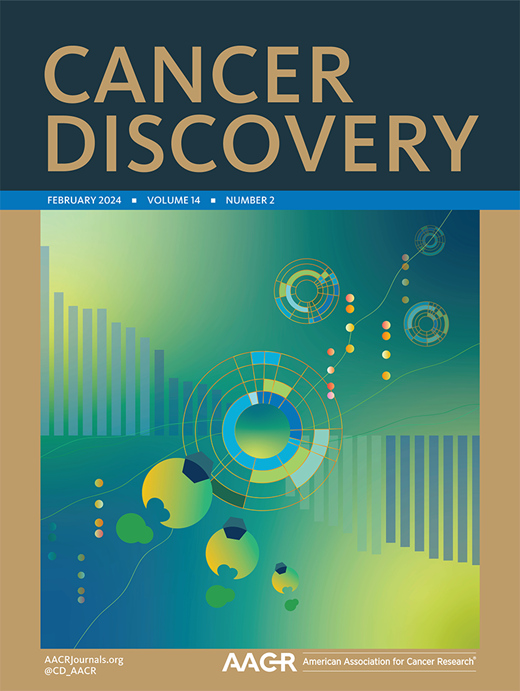突变型p53功能的获得:为什么很多人看到,为什么有些人看不到
IF 33.3
1区 医学
Q1 ONCOLOGY
引用次数: 0
摘要
摘要:人类癌症中TP53肿瘤抑制基因的突变是独特的,因为60%到70%是错义突变,导致全长蛋白在患者肿瘤中经常高表达。这些错义突变蛋白在小鼠模型和人类细胞系中经常表现出促癌活性(称为功能增益),并在某些情况下与不良的癌症预后相关。本文章由计算机程序翻译,如有差异,请以英文原文为准。
Mutant p53 Gain of Function: Why Many See It, Why Some Do not
Summary: Mutations in the TP53 tumor-suppressor gene in human cancer are unique in that 60% to 70% are of the missense variety, resulting in a full-length protein that is often highly expressed in patients’ tumors. These missense mutant proteins often exhibit pro-oncogenic activities (referred to as gain of function) in mouse models and human cell lines and correlate with poor cancer prognosis in some cases.
求助全文
通过发布文献求助,成功后即可免费获取论文全文。
去求助
来源期刊

Cancer discovery
ONCOLOGY-
CiteScore
22.90
自引率
1.40%
发文量
838
审稿时长
6-12 weeks
期刊介绍:
Cancer Discovery publishes high-impact, peer-reviewed articles detailing significant advances in both research and clinical trials. Serving as a premier cancer information resource, the journal also features Review Articles, Perspectives, Commentaries, News stories, and Research Watch summaries to keep readers abreast of the latest findings in the field. Covering a wide range of topics, from laboratory research to clinical trials and epidemiologic studies, Cancer Discovery spans the entire spectrum of cancer research and medicine.
 求助内容:
求助内容: 应助结果提醒方式:
应助结果提醒方式:


